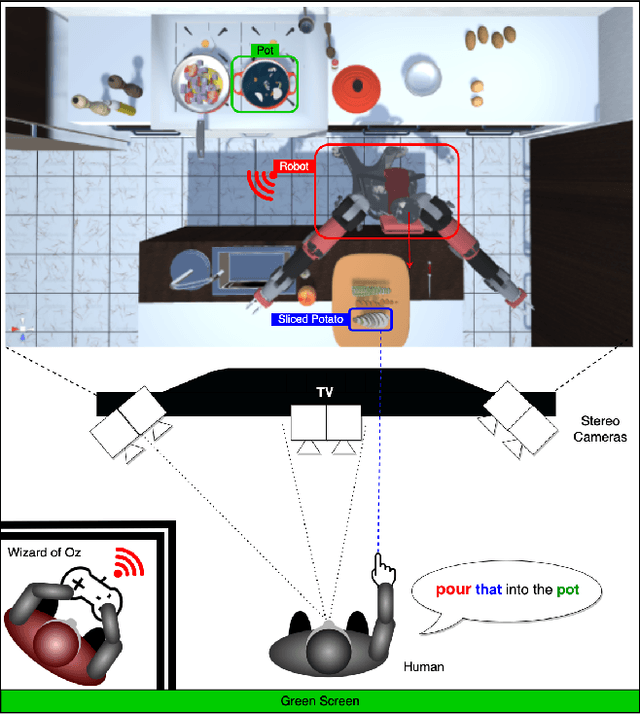Considerations for Minimizing Data Collection Biases for Eliciting Natural Behavior in Human-Robot Interaction
Paper and Code
Apr 19, 2023
Many of us researchers take extra measures to control for known-unknowns. However, unknown-unknowns can, at best, be negligible, but otherwise, they could produce unreliable data that might have dire consequences in real-life downstream applications. Human-Robot Interaction standards informed by empirical data could save us time and effort and provide us with the path toward the robots of the future. To this end, we share some of our pilot studies, lessons learned, and how they affected the outcome of our experiments. While these aspects might not be publishable in themselves, we hope our work might save time and effort for other researchers towards their research and serve as additional considerations for discussion at the workshop.
 Add to Chrome
Add to Chrome Add to Firefox
Add to Firefox Add to Edge
Add to Edge